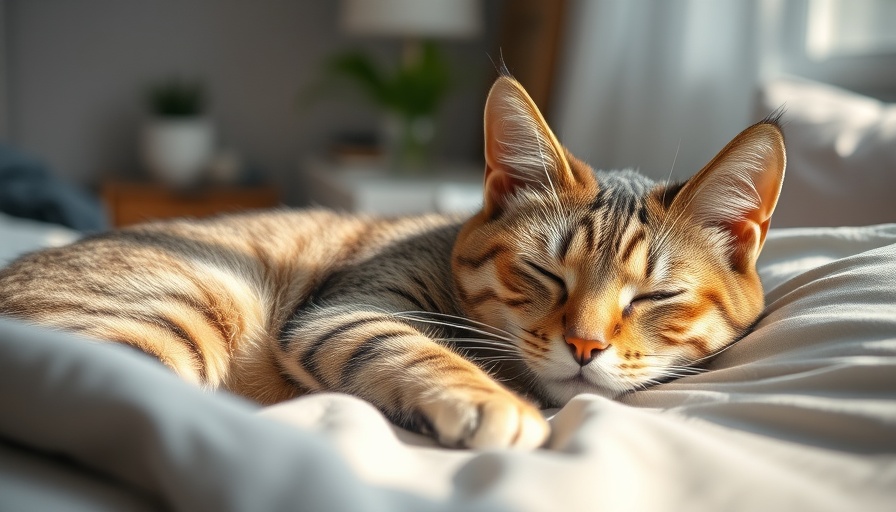
Understanding the Causes of Cat Pee Mishaps
Every cat owner can relate to the distress of finding an unfortunate accident in their home. Whether due to illness, a dirty litter box, or anxiety, understanding why your cat might stray from the litter box can be the first step toward effective prevention. Common threats like urinary tract infections or behavioral changes should be addressed with your veterinarian to tackle underlying health issues that may lead to these mishaps.
Choosing the Right Cleaning Products
When faced with the challenge of cat urine odor, swift action is key. Experts emphasize the use of enzyme-based cleaners as the most effective solution. These cleaners, like Bissell Pet Stain & Odor Remover, work by breaking down the substances in cat urine, eliminating both stains and odors, and reducing the chances of your feline friend marking the same spot again. Always choose products specifically designed for pet stains to ensure thorough cleanup.
Practical Tips for Eliminating Cat Odors from Various Surfaces
Cleaning cat pee requires different approaches depending on the surface affected. Here are some detailed strategies:
- Carpet: Soak up excess liquid gently with a paper towel without rubbing. Once blotted, saturate the area with an enzyme cleaner, blott lightly, and cover with a damp towel for several hours to ensure total absorption.
- Upholstery: If stains are set, remove cushion covers for washing. For persistent odors, employ the enzyme cleaner, letting it penetrate the fabric adequately. If all else fails, consider professional cleaning services for a deeper clean.
- Wood Floors: Use paper towels to absorb urine before cleaning with hardwood-safe products like Bona Multi-Surface Floor Cleaner. Persistent stains may need professional attention.
- Ceramic Tile: For tile, wipe and apply a suitable cleaner. Baking soda pastes can mitigate odors in grout lines effectively.
Beyond Cleaning: Preventing Future Incidents
Keeping a clean and odor-free home is a continuous task. Regularly updating your cat’s litter and ensuring the litter box is to their liking can significantly decrease the likelihood of accidents. Additionally, monitoring any behavioral changes or stressors affecting your cat's environment can foster a healthier, more predictable living situation for them.
Expert Insights on Dealing with Cat Pee
Incorporating insights from pet behaviorists, establishing a calm environment plays a crucial role in a cat's decision to use its litter box. Assessing litter types, ensuring an accessible litter box, and the placement of this sanctuary can foster better habits. A stressed cat is more likely to go elsewhere, so understanding their emotional needs is just as important as keeping the house clean.
Conclusion: Creating a Cat-Friendly Home
Then there’s the emotional factor. Building a bond of trust and security with your cat helps mitigate accidents. Recognizing stress triggers and ensuring ample mental stimulation can enhance your pet’s well-being, paving the way for a cleaner, happier home. By practicing these cleaning techniques and preventive measures, cat owners can decisively rid their homes of the lingering smell of cat pee.
In the end, having an understanding of your cat's behavior, along with the right cleaning products, can transform your living space back into a pleasant environment. For more tips and tricks on maintaining a clean and healthy home, delve into reliable resources that can aid your journey toward a box-free habit.
 Add Row
Add Row  Add
Add 




 Add Row
Add Row  Add
Add 


Write A Comment